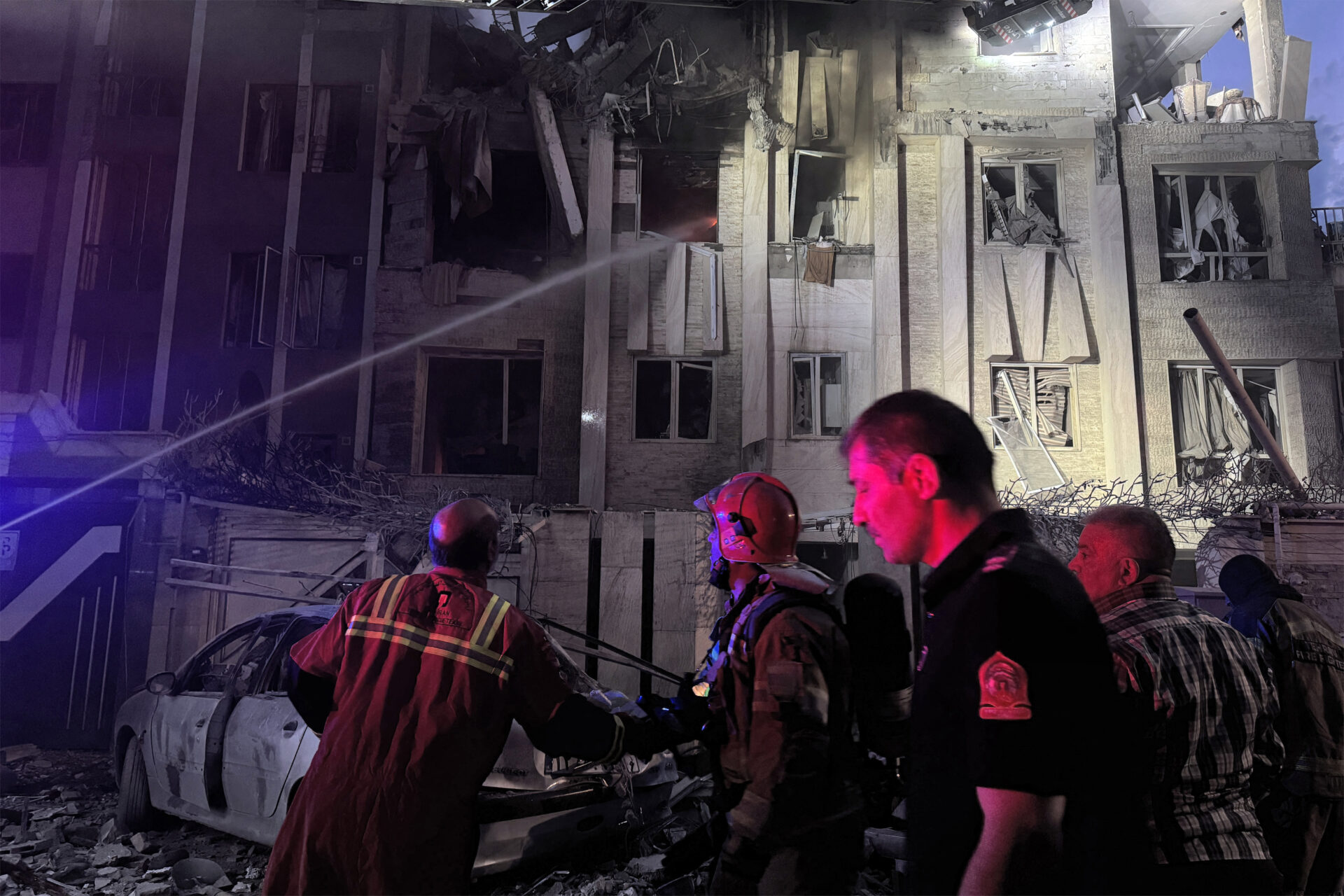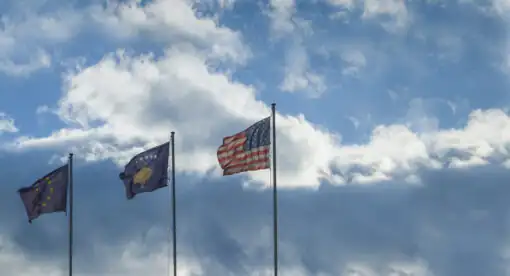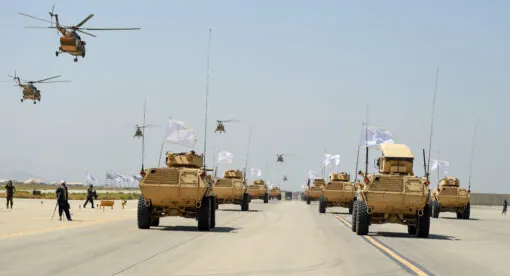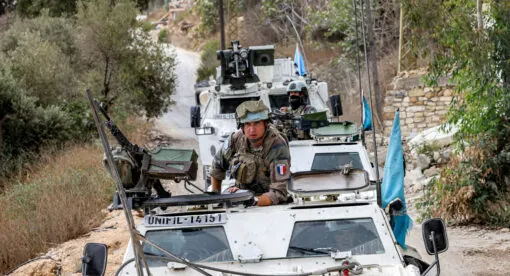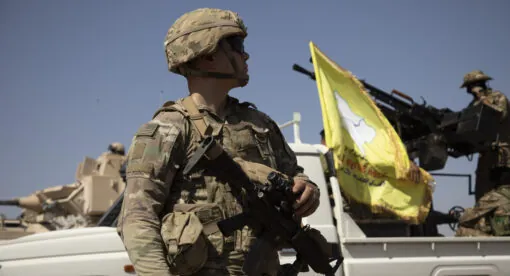Commentary from New Lines Institute’s Middle East Center experts: Faysal Itani, Rachel Nelson, Zara Farouk, Nicholas A. Heras, and Dania Arayssi
Israel launched military strikes against Iran overnight, targeting nuclear facilities and killing numerous military leaders. This move could further destabilize an already fragile region and may have implications beyond the Middle East. In this real-time analysis, experts from the New Lines Institute’s Middle East Center react to the attacks.
Faysal Itani: Iran Enters a New Phase
An operation 20 years in the making has finally happened. Although policymakers and analysts have been gaming out this scenario for decades, it usually assumed a relatively robust and secure Iranian regime enjoying several conventional and unconventional retaliatory options. What makes the Israeli strikes especially damaging is the past months of degradation and humiliation of Iranian assets in the region and Tehran’s inability to impose meaningful costs on the Israelis. This type of prolonged embarrassment (to say nothing of the killing of Iran’s military leadership) is not healthy for a police state, especially one that legitimizes itself as a vanguard of regional resistance to Israel. Revolutionary regimes that lose this aura and fall back on pure manipulation and repression enter a tricky new phase. It’s not clear the Iranians have serious retaliatory options, and if they used them, the United States might enter the fray as well, which would pose a grave danger to the regime. Making predictions about regime survival in Iran is a fool’s errand, given the complexity and our lack of useful data and insight into this complicated place. It’s clear, however, that this is the greatest danger to it since the Iran-Iraq war. The main indicator of its survivability will be the regime’s ability to reimpose at least some deterrence with Israel without inviting total devastation of regime security institutions.
Rachel Nelson: Israel’s Strikes on Iran Threaten Regional War
The Israeli strikes on Iran are a dangerous escalation against the backdrop of the war in Gaza and the ongoing transition in Syria. This quickly spiraling war threatens further regional deterioration, drawing in Iran-backed militias and straining recently budding diplomatic relationships between Iran and the Gulf countries. There is no doubt that those who will suffer the most if diplomatic solutions don’t persevere are civilians in Iran, Israel, and the occupied Palestinian territories. Although U.S. President Donald Trump’s statement this morning expresses full support for Israel’s military action against Iran, this escalation makes it appear as though the United States is no longer able to restrain Israeli aggression, further complicating vital Gaza ceasefire negotiations and pushing prospects for peace further out of reach.
Zara Farouk: Implications for Gulf States and China
Operation “Rising Lion,” as Israel calls it, aimed at neutralizing Iran’s nuclear capabilities, risks entangling the Gulf states in a broader regional conflict. For Saudi Arabia, the United Arab Emirates, and fellow Gulf states, this escalation forces an increasingly difficult balancing act – maintaining their security-based relationship with the U.S. and Israel while managing their diplomatic and economic relations with Iran and China. Israel’s actions have once again heightened the risk of a regional spillover, placing pressure on Gulf states to call for Israel and Iran to deescalate to prevent a spike in oil prices that would adversely affect China, the largest consumer of Gulf and Iranian oil. China’s next steps as a key energy and diplomatic partner to the Gulf states and Iran will be critical to avoid disruptions to global energy supply chains. Israel’s actions have emphasized the volatility of the region and an urgent need from the U.S. and the international community to call for both players to deescalate for the sake of regional security and to protect global energy markets.
Nicholas A. Heras: Iran and Israeli Military Strategy
Israel is seeking to impose a fait accompli on Iran that would not only curtail its nuclear program but also create the conditions for the collapse of the Islamic Republic regime soon. The Israeli military campaign is operating openly in many instances from within Iranian territory, which is meant to be a declaration to the Iranian people that the regime is weak. In fact, the Israelis have long bristled at the assertion from Iran and its proxies that Israel was “weaker than a spider web.” Israel’s military campaign is designed to turn this slogan around and use it as propaganda to devastate the system of authoritarian control inside Iran. Iran’s leadership faces a dilemma: Should Iran escalate into a wider war with Israel, and likely the United States, or should it quietly back down and buy for time to preserve what it can from its nuclear program and its ballistic missile warehouses and live, but with dangerous embarrassment? The Islamic Republic leadership has no easy choice to make, and each option could significantly weaken the regime and cascade into widespread uprising inside Iran that could lead to the disintegration of one of the region’s key states.
Dania Arayssi: Implications for Lebanon and Hezbollah
Israel’s strikes come at a critical moment in the Middle East: Former Syrian President Bashar al-Assad’s regime has collapsed, U.S.-Iran nuclear negotiations have stalled, and Lebanon is navigating critical political transitions and reforms. The Lebanese government explicitly asked Hezbollah to avoid retaliating for the strikes, a remarkable shift in regional dynamics that stems from Lebanon’s commitments to the United States regarding comprehensive political reforms aimed at reasserting state sovereignty over nonstate actors such as Hezbollah. Lebanon’s decision to prioritize diplomatic relations with Washington and the international community and to distance itself from Iran’s sphere of influence signals a potential realignment that could reshape the balance of power in the region. This convergence of factors has created an unprecedented window where Iran’s traditional deterrence mechanisms are severely constrained, fundamentally altering the strategic calculus across the Middle East. Avoiding retaliatory activities opens pathways for increased international assistance and reconstruction aid for Lebanon, particularly from the United States and Gulf states that had previously been reluctant to invest given Hezbollah’s and Iran’s dominance in the country.
To reach out to one of our Middle East experts, please contact [email protected].
The views expressed in this article are those of the author and not an official policy or position of New Lines Institute.

